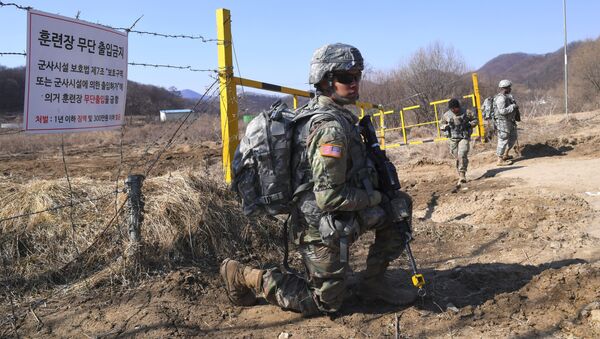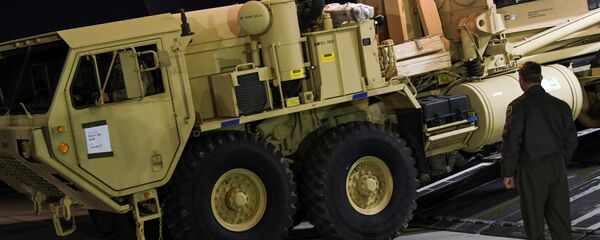During his recent visit to Seoul, China's Special Representative for Korean Peninsula Affairs Wu Dawei emphasized that Beijing opposes the deployment of the THAAD system, stressing that the anti-ballistic missile defense system's radars are capable of monitoring more than half of China's territory if installed in South Korea.
At a meeting with South Korean presidential candidates and their teams that took place on April 11, Wu signaled that Beijing hopes that the new government would cancel the decision to host the THAAD. He dropped the hint that the implementation of the missile defense system would prompt economic retaliatory measures from China and Russia.
"I visited [South] Korea last February and heard from South Korean representatives that the government was mulling the deployment of THAAD and that nothing had been decided yet; however, not a lot of time's passed and the decision has been announced," Wu said.
"To be frank, I believe that this decision is completely unprofitable for the Republic of Korea," he stressed, "I hope that the wrong decision will be corrected, and, therefore, we are looking forward to the forthcoming presidential elections."
"The Chinese keep expressing their opposition to the THAAD deployment, but I said the THAAD issue is already a finished story. Its deployment has already begun, so I said it would be best not to talk about it anymore," Kim told the media outlet, commenting on the issue.
For his part, Song Yeong-gil, the head the of the Democratic Party Toburo campaign headquarters, insisted that China should lift the measures taken against South Korea.
"Imagine, that Taiwan has targeted you with nuclear weapons and has repeatedly launched missiles," Song told Wu in a clear reference to North Korea's missile tests.
Speaking to Sputnik Korea on conditions of anonymity a military expert and representative of the election camp remarked that China's radars located in the Heilongjiang province are monitoring the entire territory of the Korean Peninsula.
"Isn't the radar installed in the Chinese province of Heilongjiang tracing the entire territory of the Korean Peninsula? When Wu Dawei was reminded of this, he only said: 'I'm not sure from the military point of view, but this equipment is not designed to track military facilities located on the territory of Korea'," the source told Sputnik.
In response Wu said that during the meeting with US President Donald Trump Chinese leader Xi Jinping reiterated that Beijing opposes the deployment of the THAAD missile system in South Korea.
"The United States intends to improve relations with China in some aspects, but it is unclear how true this is," Wu said, "Perhaps in their hearts they are happy with the deterioration of relations between China and South Korea."
According to Wu, "it is obvious that neither China nor the Democratic People's Republic of Korea (DPRK) wants the conservatives to return to power in South Korea."
"We will not support efforts to solve the North Korean problem forcefully, and Washington is well aware China's position," the Chinese envoy stressed.




